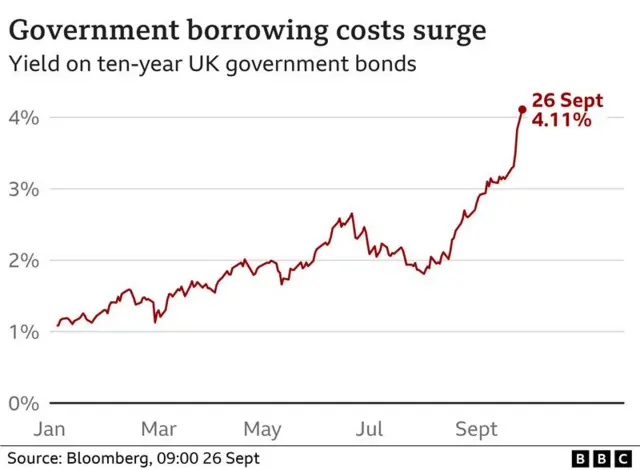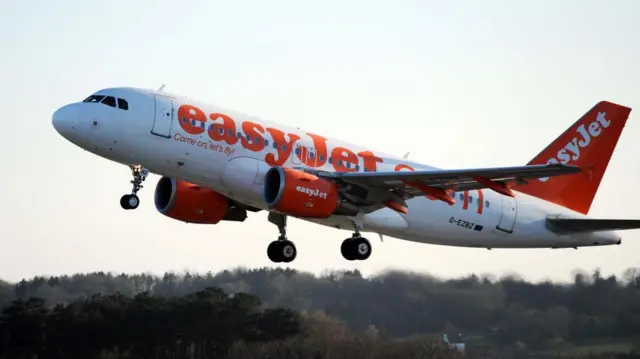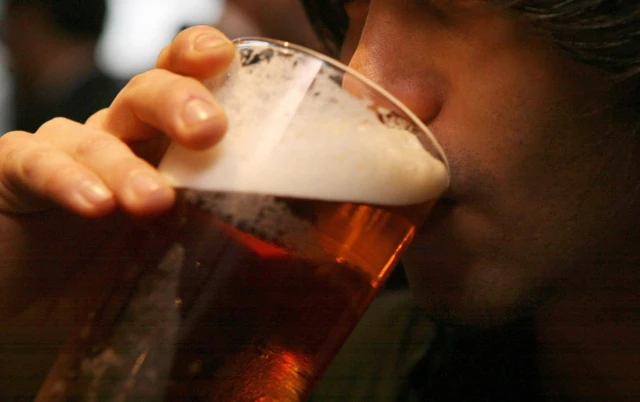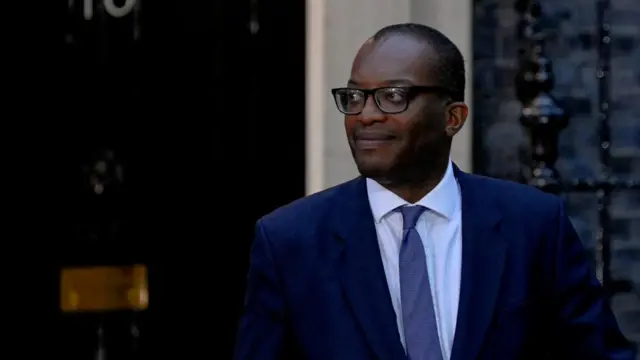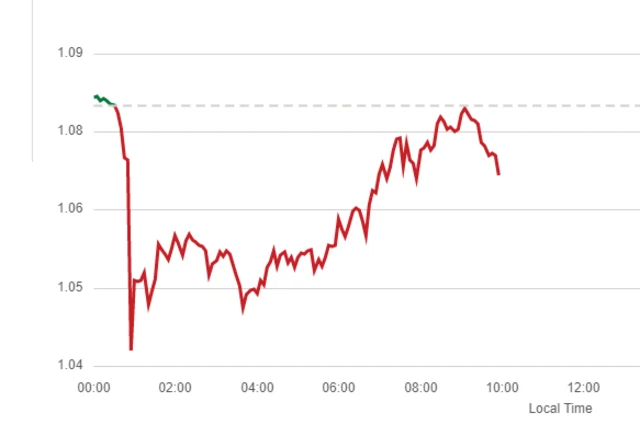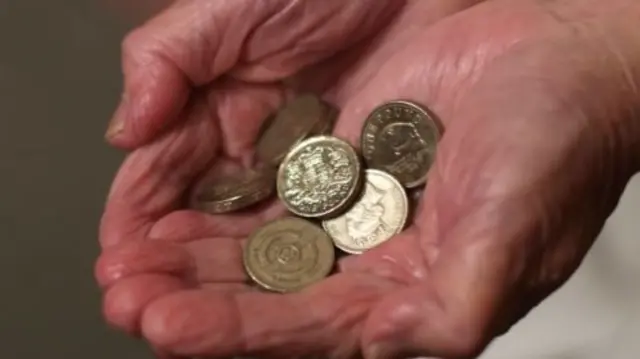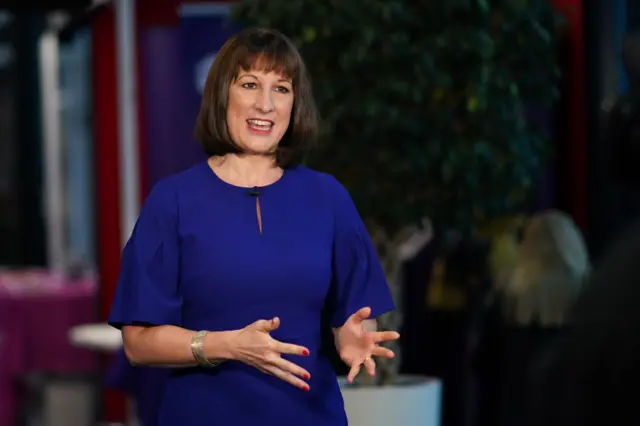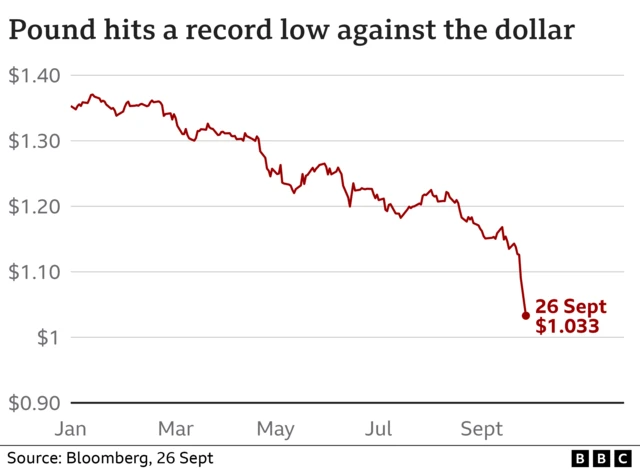Reeves sets our Labour's 'green prosperity plan'published at 12:22 BST 26 September 2022
More from shadow chancellor Rachel Reeves now, who in the last few minutes has set out Labour's "green prosperity plan" during her keynote speech at the party's conference.
She said Labour's plan is to:
- provide "the only sustainable solution to the energy crisis"
- to "free ourselves from dependence on Russia"
- and "to invest in solar, in wind, in tidal, in hydrogen and nuclear power"
Reeves said the ultimate aim is "to pass on to our children a fairer, a greener country", describing this as both a "moral responsibility" and "economic necessity".
"On climate change, the costs of in action today will mean far greater costs tomorrow," she said, adding: "I refuse to leave our children to pick up the pieces of our failure."
And to huge applause, she told delegates: "I will be a responsible chancellor. I will be the first green chancellor."


